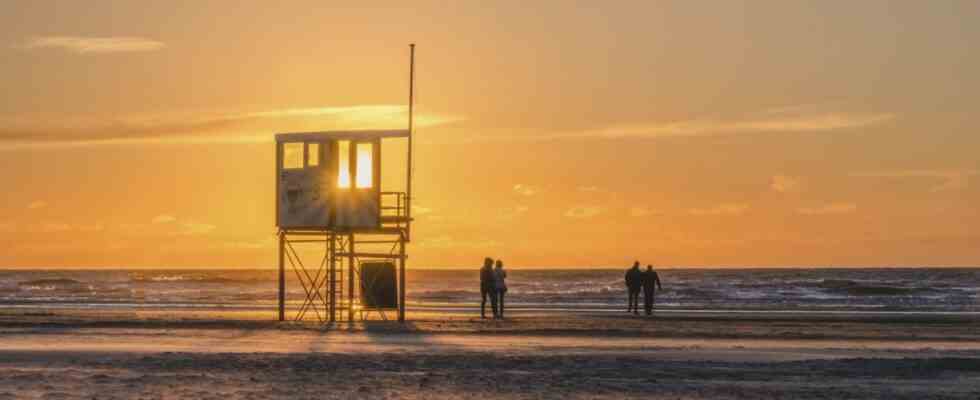To speak of the Stockholm syndrome would be exaggerated. Because neither the Île de Ré nor his wife Kristin did violence to Bernd Eilert. And yet, as the narrator and translator with great comic talent describes it, he was, so to speak, abducted to this island off the French Atlantic coast. Although he was skeptical and didn’t expect much from vacationing there, he quickly felt drawn to the Île de Ré. To his wife obviously much earlier.
In the meantime, he wouldn’t want to do without the stays there anymore. “However, I can only vaguely describe what made the Île de Ré my island,” Eilert objects: “Perhaps it was more a feeling of well-being than pleasure.” In fact, it’s not so much picturesque towns or breathtaking landscapes that made the former co-founder of the satirical magazine titanic and author of the New Frankfurt School for the Île de Ré. “The first impression you get of the nature of the island is not exciting: low groves, rows of vines, prairie-like wasteland,” he writes in his volume “My Île de Ré”: “The palette of the island tends to be muted here Shades of old sofa cushions, velor-like surfaces as if covered with fine fibers.”
This has spared the island many a tourist outgrowth. Eilert appreciates a certain modesty, the calm, the unpretentious on the Île de Ré. The only six-packs sported on the island are found on frowns. However, the author is clever and honest enough to note that hardly anything of any kind of originality has survived. “At least during the holidays, the French bourgeoisie lodges in the island cottages and enjoys what they probably think of as the simple life.”
The French causes problems for the author. Nonetheless, he makes good use of it
Eilert himself plays this game in part, while not succumbing to any illusions of authenticity. Above all, he enjoys cycling – “in shorts and a flapping shirttail” -, happily rummages through the history of the Île de Ré, also on his own behalf, and is happy that it’s rarely overcrowded here. Even if the places, beaches and paths have recently become fuller. But you can only complain about that if you consider yourself to be something better. Eilert is a long way from that, at least as far as he is concerned as a holidaymaker. He doesn’t even speak proper French, he accuses himself, he’s just making increasingly bold use of it.
As a reader, one finally understands what fuels Eilert’s sense of well-being. You can share it or not. In addition, one is amusingly entertained by descriptions of consistently unspectacular things. What an elegant stylist and unbiased observer Eilert is becomes even clearer if you read Sandra Lüpkes’ book “Mein Juist”, published in the same series by Mareverlag.
In it, the author of regional thrillers, Inselschmonzetten and society novels slobbers linguistically and argumentatively about the East Frisian island: the west and east of Juist are a proud 17 kilometers apart, the highest elevation is a proud 22 meters high and the tower of the first island church is probably proud reached 50 meters. Pupils are called ABC-shooters, and that it rains is a decision of Peter. Lüpkes classifies the best house on the island as a luxury hotel with noble cuisine – it is a 4-star-plus hotel with upscale home-style cooking, which makes a difference. Lüpkes, who knows Juist much more intensively than Eilert knows the Île de Ré, appears moody, but is able to tell much less of anything relevant.
Bernd Eilert: My Île de Ré. Mareverlag, Hamburg 2022. 192 pages, 20 euros.
Sandra Lupkes: My Juist. Mareverlag, Hamburg 2022. 192 pages, 18 euros.

